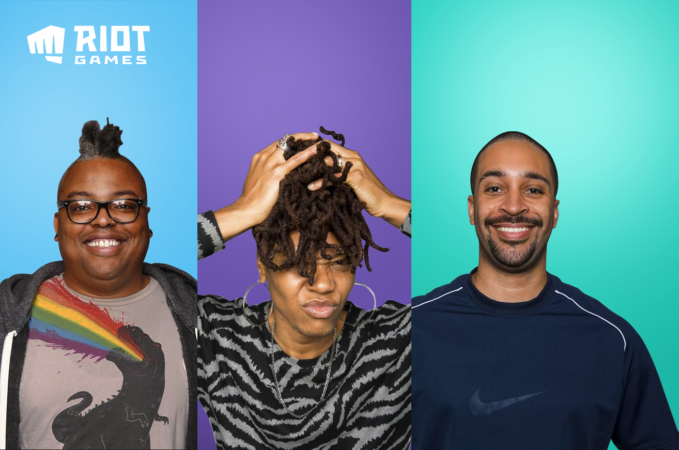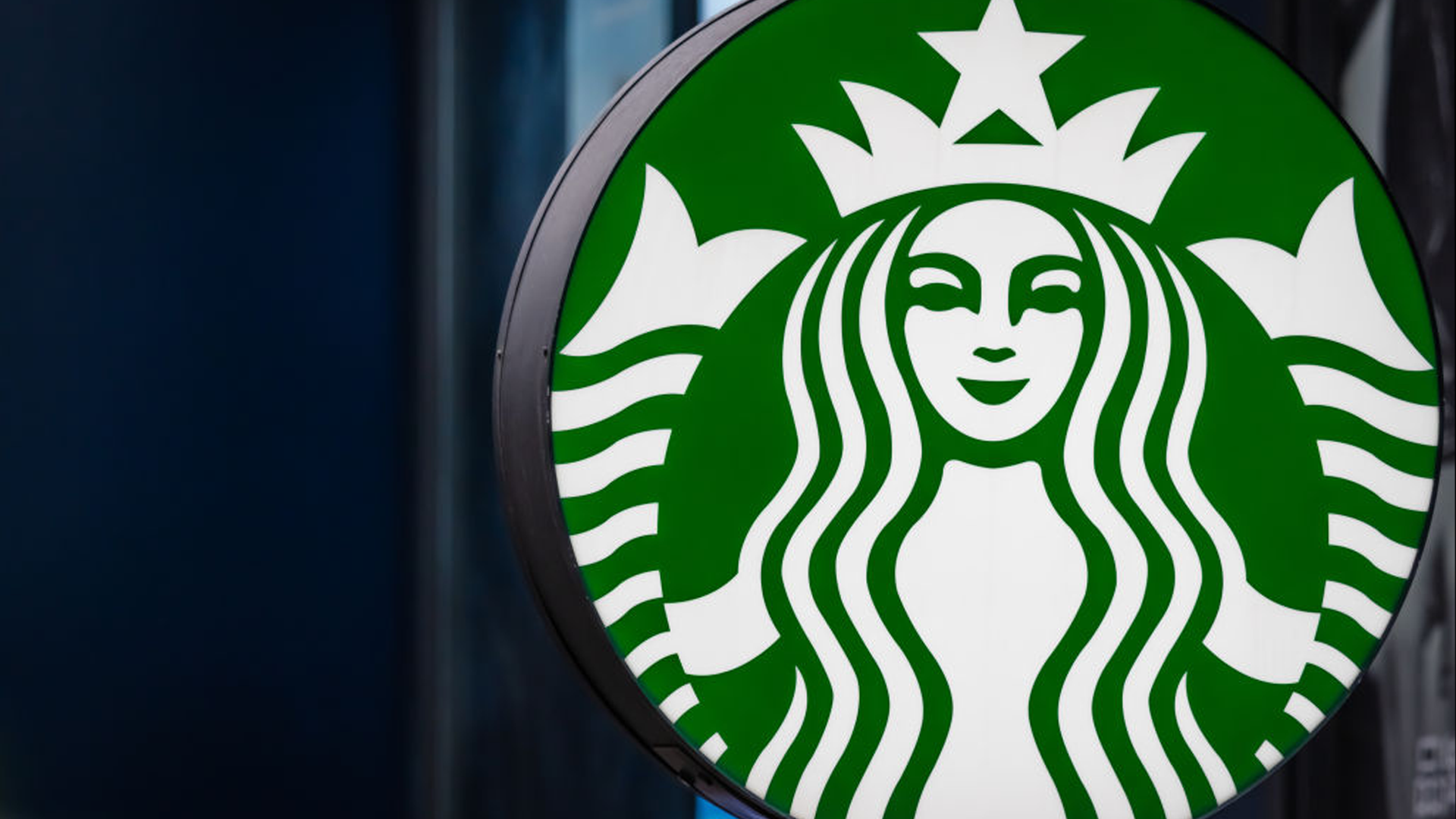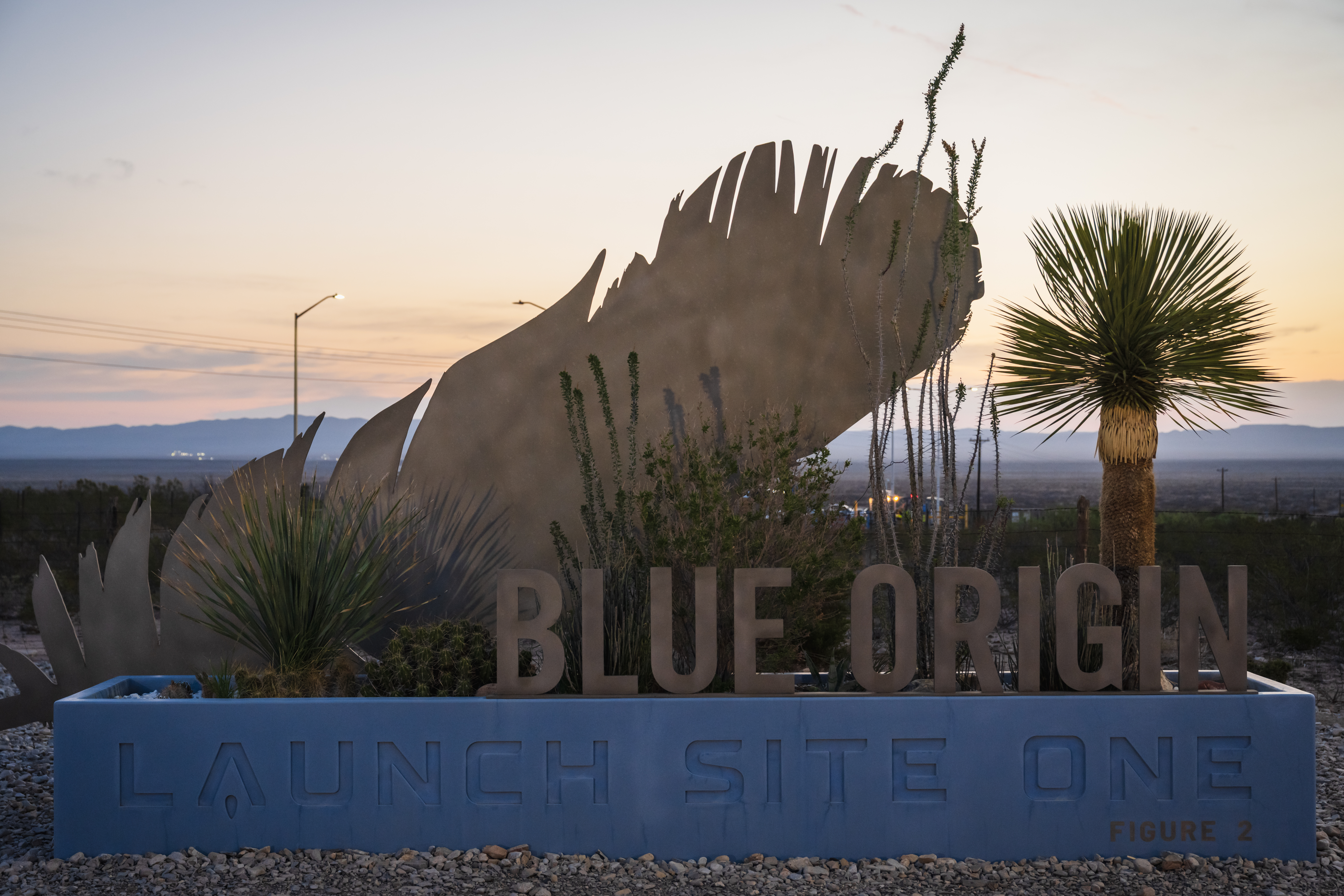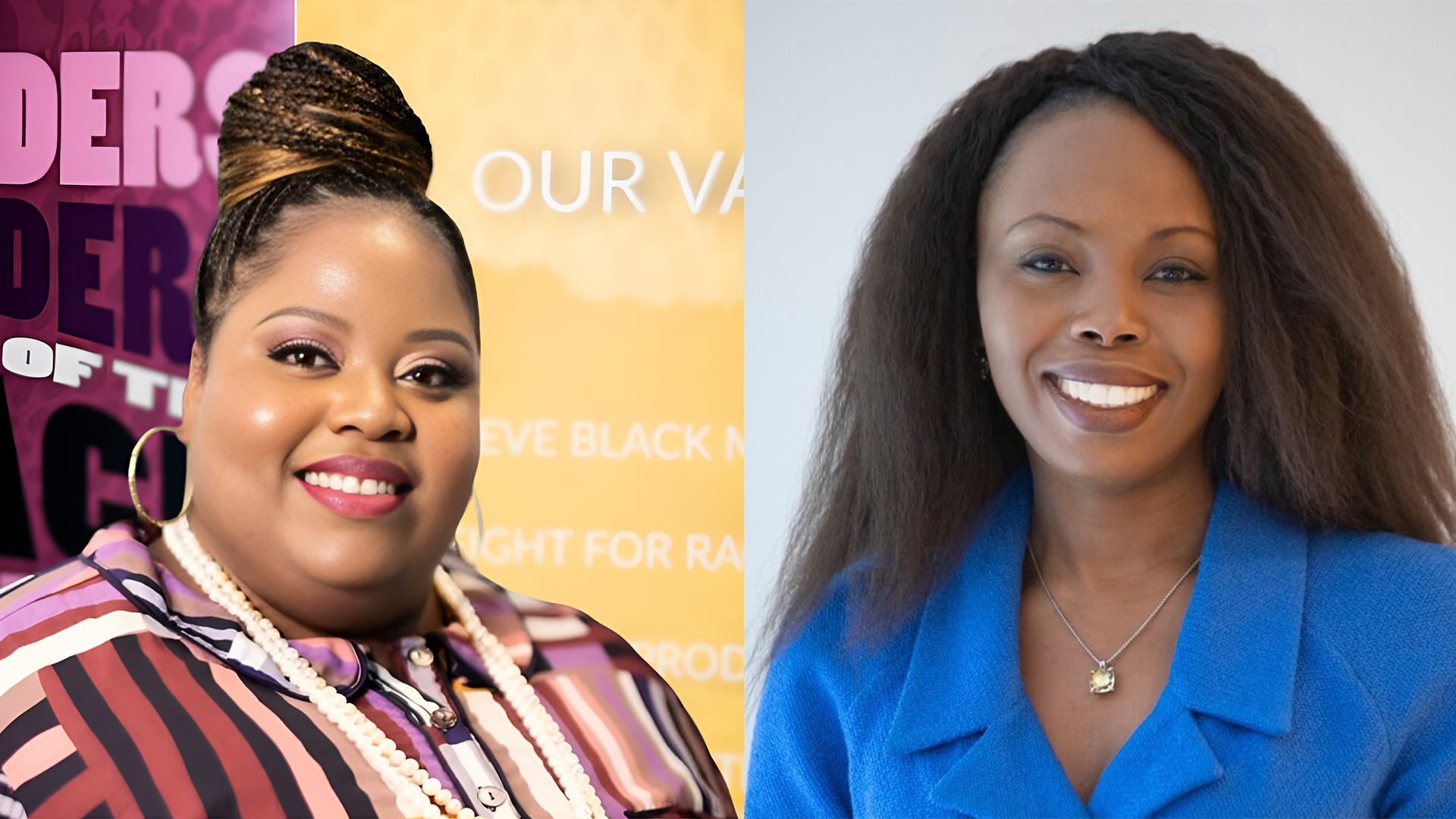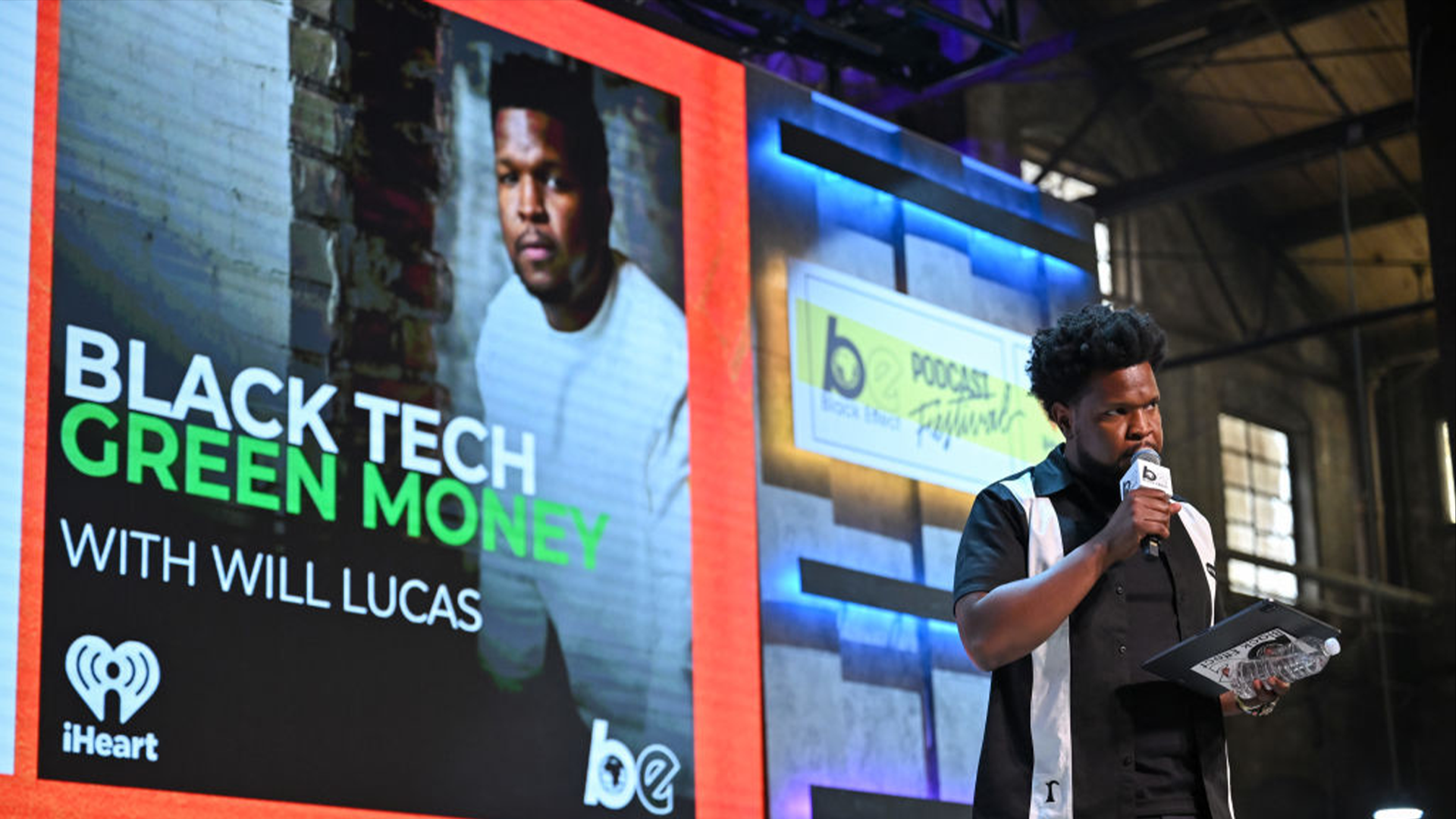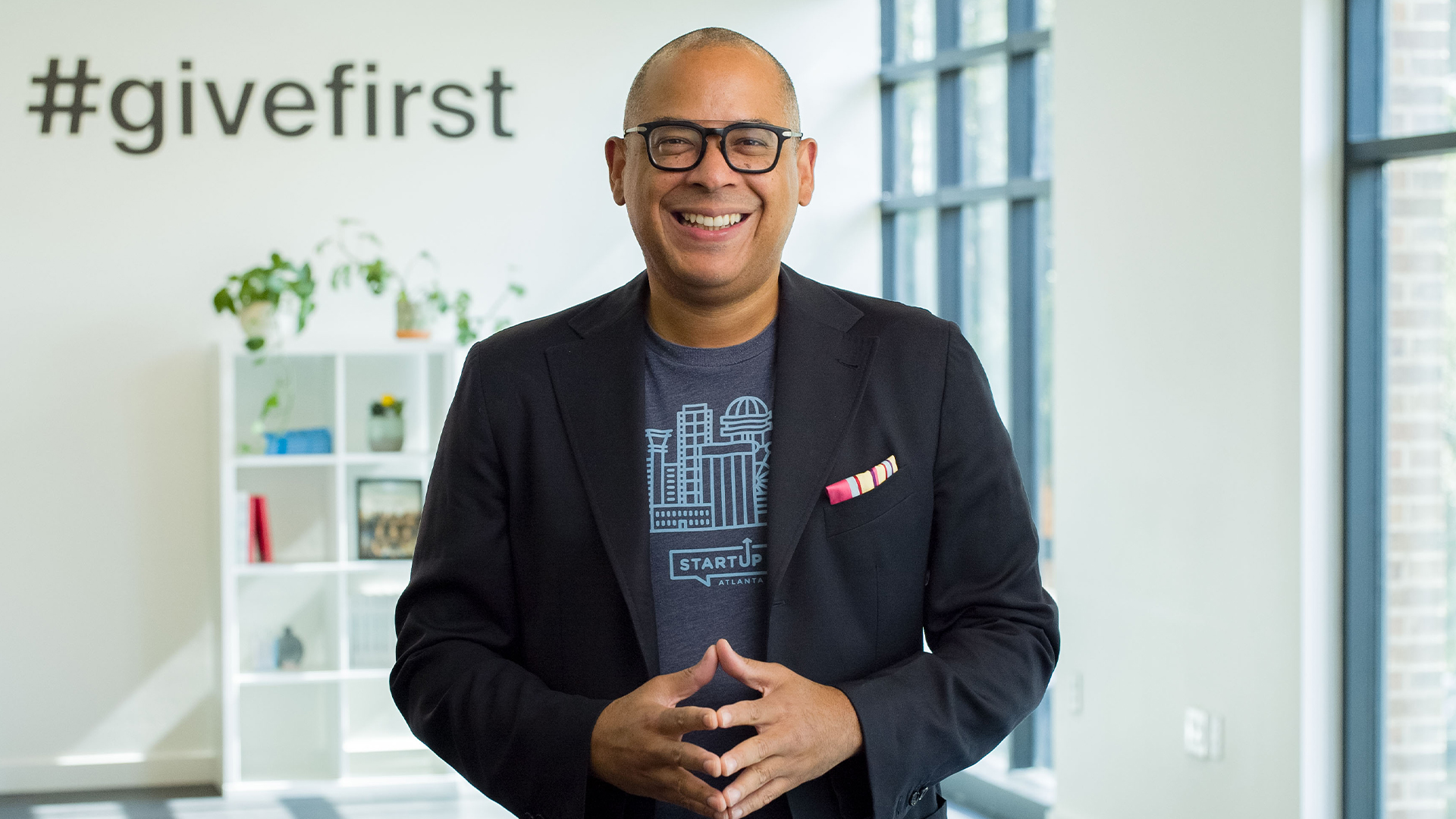Los Angeles-based video game company Riot Games is shedding light on the importance of representation in the workplace. The company, which is best known for some of the world’s most popular games like League of Legends and VALORANT, is also attempting to become the industry leader in diversity and inclusion (D&I).
One way they’re doing so is providing a safe space for Black Rioters to come together and share their experiences in the gaming industry in a community-like environment through Riot Games’ Black ERG, Riot Noir.
Members of Riot Noir spoke with AfroTech about how they entered the industry, their experience working with Riot, and their aspirations for the next generation of game developers.
“As Black people, we spend so much of our day as the only one,” says Jahmeilah Roberson, Senior UX designer at Riot Games. “In gaming, on top of being the only Black person, I may be the only woman in a day’s worth of meetings. So, connecting with other people who understand the nuances of being Black in the specific context of Riot is priceless.”

Roberson says she was motivated to create Riot Noir based on her need to connect with more Black folks at work. The senior UX designer came up with the idea for the ERG six years ago while having lunch with visual designer, Rel Hunt. Both of Roberson’s parents work in tech in Silicon Valley and growing up she watched them spearhead and participate in Black employee resource groups.
While video games are popular in the Black community, representation in the industry that makes them hasn’t kept up. Black Rioters are able to share their personal perspectives on how they are able to maneuver through the gaming industry. They are breaking barriers and are setting examples of the multiple ways Black gamers can enter the industry.
Roberson said when she found out about the opportunity to work at Riot, she was drawn to its strong sense of purpose and commitment to players. She saw it as the perfect place to grow as a designer because of Riot’s global impact that continues to expose her to more stories.

Sebren Green, Senior Director of Quality Assurance, has a positive outlook on the diversification that’s still ongoing at Riot Games. Over the years of him being a Rioter, he has always felt empowered to perform to his fullest potential and show up at his best self at work.
“You have the opportunity to excel,” Green said. “And I think that’s important for everybody, but I do think that’s important as a Black man working at Riot. Yes, I recognize I am often the only Black person in the room and yes, I’m one of the only Black senior leaders, because riot’s still trying to get there, but I’ve never felt like that was making an impact on my ability to be effective.”
Another way Riot is supporting their employees is by providing more opportunities that suit their interests and they’re also focusing more on diversity and inclusion in leadership. Over the last two years, Riot has been focused on making significant strides including hiring a Chief Diversity Officer, Angela Roseboro, and building the largest D&I team in gaming.

Engineering Manager, Gavin Jenkins shared, when it comes to diversity, Jenkins supports channeling the human experience. He believes that art and various forms of media can help by not only providing entertainment, but education and accurately narrate the Black shared experience.
“I see certain movies, shows, and experiences that just kind of tries to be a real experience, but it’ll skip out on oppression,” Jenkins said. “It will skip out on certain things that to me are part of what I see as the unfortunate human experience. So I like that Riot is willing to take a look at diversity in general and it is finding its way into this media.”
Jenkins considers the creation of Riot Noir as not only creating value for members, but a way for Black Rioters to give back to the company and the gaming community, by adding authenticity where he feels the video game industry missed the mark with representation. Black employees at Riot are able to share their experiences and state of being to contribute the narrative and design space, as well as visuals.
Green is in alignment with the environment that Riot Games creates to hold space for diversity and provide employees the space to talk out loud about their Blackness, and also support their outreach efforts to the community. When he entered the industry, he remembers that he didn’t have many role models to look up to in the gaming industry or who had a great success story that matched up to his. But, the biggest message he would send young minorities who are considering entering the industry is to know that the opportunities are available.
“I think that growing up as a minority in this country, you spend a lot of time thinking about what you can’t do,” said Green. “I can’t drive home enough that we have to find ways to help kids know that the path is there and it might be obscured by shrubbery, you know.”
He added, “when we can get to a world where the race of the protagonist, the lack of representation or the race of the developer or executive isn’t the first thing we have to talk about because of the rarity of it, I think that’s when we will have made advances.”
Although Roberson believes there’s room for improvement with diversity in the gaming industry, she is proud that she has been able to help influence the representation of Black characters so that kids can see themselves in our games.
“I have an 8-year-old daughter and she and her friends are just now really getting into video games,” said Roberson. “Seeing her choose an avatar that reflects her skin color is only part of the pride I feel. Remembering a time when my skin tone wasn’t represented and seeing that be a choice for my daughter (we’re still working on hair choices though) reminds me of the impact my voice can have on products at Riot. These may sound super basic but I’ve learned to celebrate each win, no matter how small.”
To take it a little further, Roberson does believe that there needs to be more conversation surrounding topics like pay equity, recruitment, and investing in independent Black developers.
“I am grateful to be at a company that wants to lead the charge for that,” she said. “I take my responsibility as a Black woman in tech very seriously. Enabling the Black girls around me to see themselves in tech, let alone gaming is something I keep top of mind when I’m pushing myself towards the next accomplishment or difficult conversation. When the next generation of young Black girls arrive in gaming, I want to ensure they are met with less resistance and treated equitably.”
Jenkins and Green are both proud of the growth and healthy direction Riot is taking in supporting Black employees to be themselves. Riot takes pride in fostering a fair, collaborative, high-performing culture where all employees can come together and bond over the joy of making games. Riot Noir is also creating activities and initiatives for the Black community that extends beyond the company’s walls, they hosted a game night last year at the conference where the Blavity team took home the winning title.

This editorial series will continue to dive deeper into Riot Games mission to create a more diverse gaming community. Keep an eye out for the next piece highlighting Riot Noirs Influence over the Black characters in the League of Legends franchise and how they’re creating deeper resonant characters.
To learn more about Riot Noir and career opportunities across many categories, visit their careers page.
